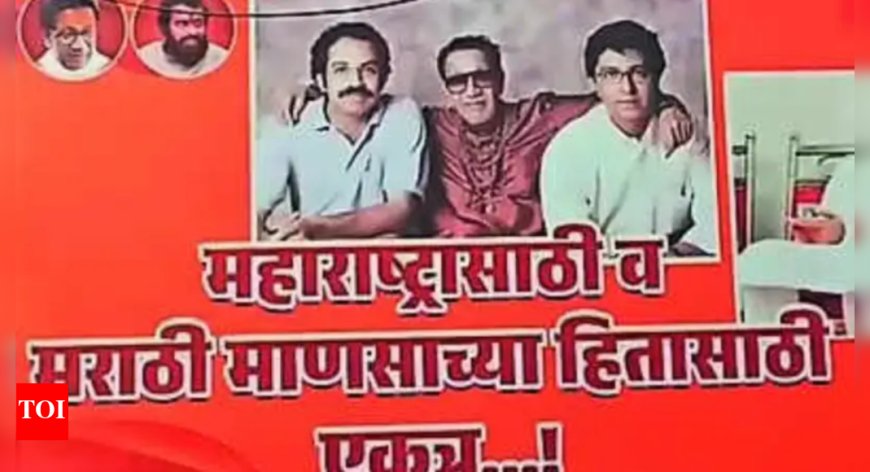'Will UBT apologise for 17,000 cases?': Amid talk of reunion between Uddhav and Raj Thackeray, MNS second rung recalls past hostilities
MNS leader Sandeep Deshpande revealed that an attempt to reconcile with Uddhav Thackeray in 2017 was rejected, criticizing Thackeray's past actions against MNS workers. Sanjay Raut emphasized that Raj Thackeray's stance is what matters, welcoming cooperation for Maharashtra's benefit while excluding anti-Maharashtra elements.

'Will UBT Apologise for 17,000 Cases?'
In recent political discussions, the spotlight has turned towards a potential reunion between Uddhav Thackeray and Raj Thackeray, significant figures in Maharashtra's political landscape. Amid this backdrop, the Maharashtra Navnirman Sena (MNS) is recalling past hostilities tied to 17,000 cases that arise from their tumultuous history. This situation calls for a serious examination of accountability, forgiveness, and a path forward for both parties.
The Context of Political Hostilities
The Thackeray family's political narratives have often been marred by disputes and disagreements. Over the years, Uddhav and Raj Thackeray have made headlines for their contentious relationship, often reflecting the broader political dynamics in Maharashtra. As talks of reconciliation emerge, questions arise about whether the UBT (Uddhav Balasaheb Thackeray) faction will take steps to address past grievances linked to 17,000 filed cases against their political rivals and former allies.
Seeking an Apology: A Turning Point?
The call for an apology is not just a matter of political decorum; it speaks volumes about the readiness for healing and collaboration in party politics. With MNS leaders reflecting on past actions, it raises the question: can a united front be created amidst a backdrop of previous animosities? This potential reconciliation offers a unique opportunity for both parties to redefine their roles in Maharashtra's political narrative.
Impact of Uddhav and Raj's Reunion
Should both leaders bury the hatchet, the impacts could reverberate through Maharashtra's political landscape. A united front could translate to a strengthened voice for their constituents and a more stable political environment. Leaders from MNS are particularly vocal in reminding their supporters of the past, emphasizing the need for transparency and honesty in future dealings.
The Road Ahead: Collaboration or Continuation of Hostilities?
The future remains uncertain. As the discussions progress, the question of whether UBT will regulate its stance on past actions and offer apologies remains. Political experts suggest that addressing these historical grievances could be pivotal in fostering unity among Maharashtra's political factions. However, skepticism persists, fueled by the complex nature of regional politics.
Conclusion
As the political dialogue unfolds, the call for reconciliation stands as a significant moment for Uddhav Thackeray and Raj Thackeray. Whether it will lead to an apology regarding the 17,000 cases and reconstruct past relationships remains to be seen. What is clear is that the state of Maharashtra is watching closely, with implications that extend beyond just party lines.
For more updates on this evolving story, visit News by dharmyuddh.com.







